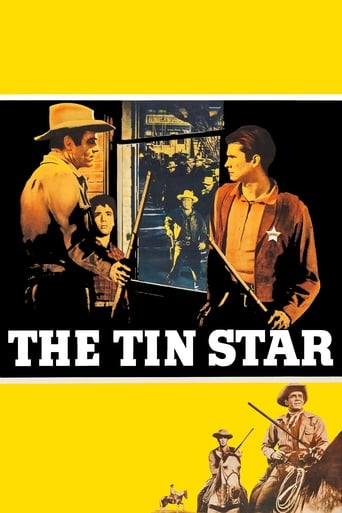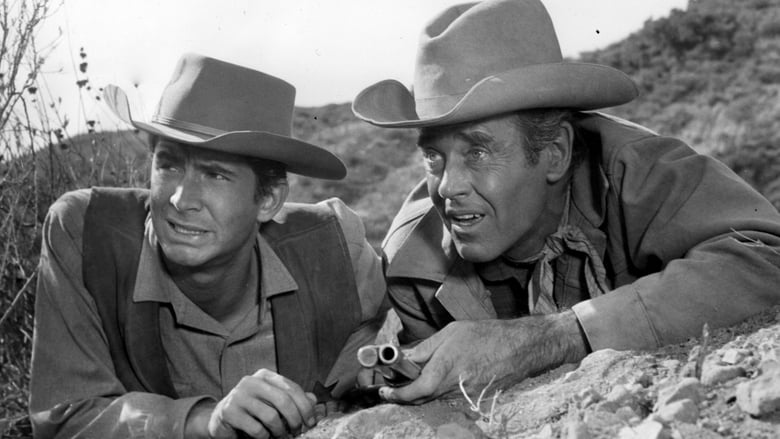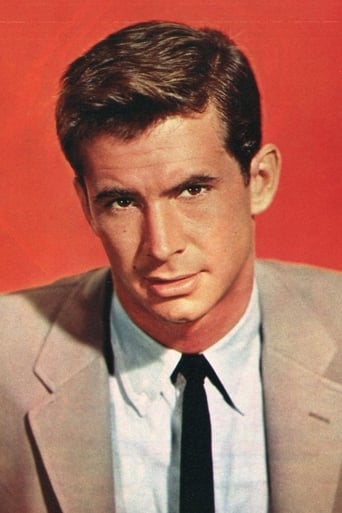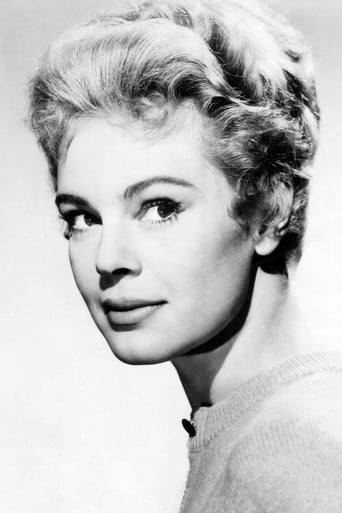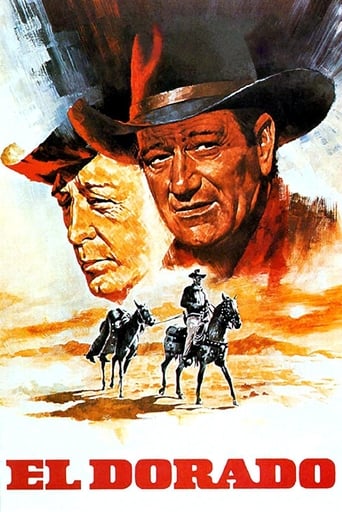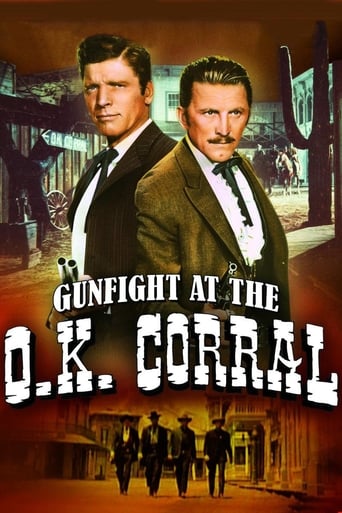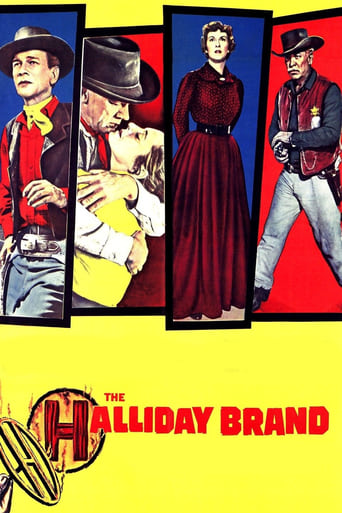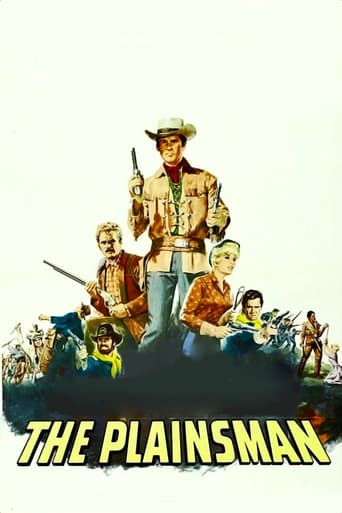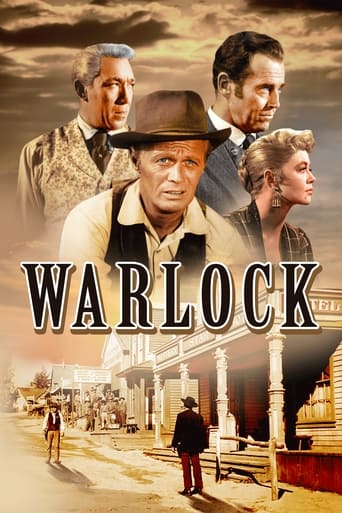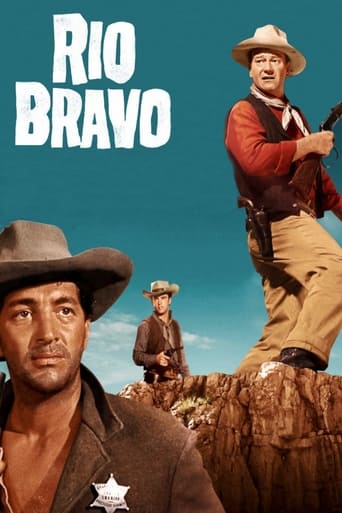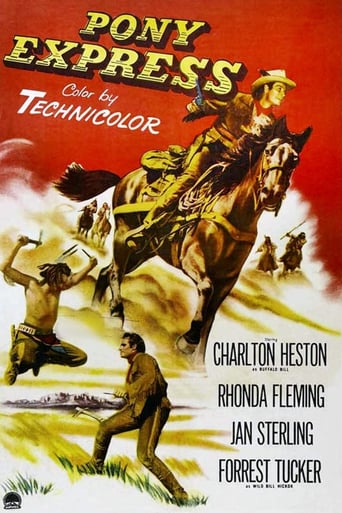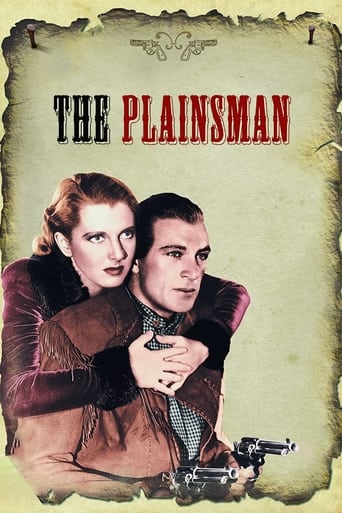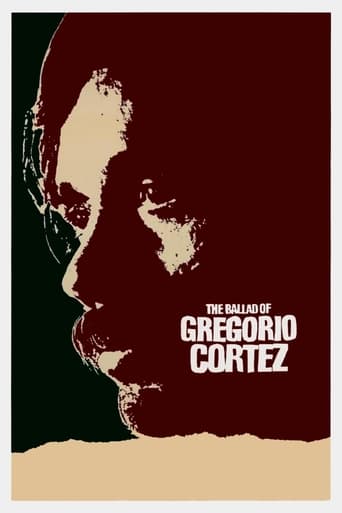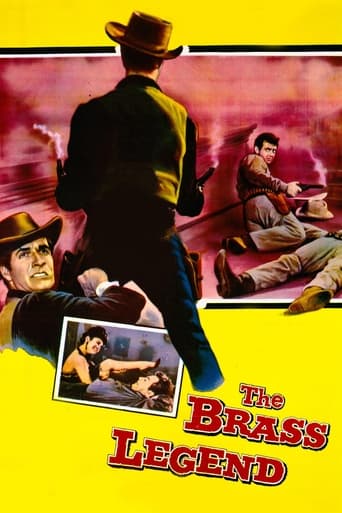The Tin Star (1957)
An experienced bounty hunter helps a young sheriff learn the meaning of his badge.
Watch Trailer
Free Trial Channels
Cast


Similar titles
Reviews
Best movie of this year hands down!
Gripping story with well-crafted characters
A great movie, one of the best of this year. There was a bit of confusion at one point in the plot, but nothing serious.
A film of deceptively outspoken contemporary relevance, this is cinema at its most alert, alarming and alive.
Once a respected sheriff, a cynical bounty hunter takes to mentoring the nervous, inexperienced young sheriff of a sleepy town in this western drama starring Henry Fonda and Anthony Perkins (in the time before he became typecast in psychopath/horror roles). A common criticism of the film seems to be the casting of a timid Perkins as a sheriff, but his uneasiness in the role is very much deliberate and the chemistry between Fonda and Perkins works every step of the way. What does not quite work so well is a subplot with Fonda finding a surrogate son in a local boy of mixed ethnic descent. While a stranger to the town, Fonda is incredulously invited by the boy's single mother to stay at their house, and sleep in his bedroom (!), and when the boy later goes missing, Fonda's search for him is too obviously metaphorical to click (it is revealed that he lost his own son years ago). The entire second half of the film - not just the search for the boy - is weaker than the first half though with more action than acute dialogue exchanges between Fonda and Perkins. The second half does, however, feature a memorable final scene for John McIntire, who is great throughout playing a character one and a half times his actual age. The final showdown is not half bad either. The juice of the film though comes from the first half with the bond between Fonda and Perkins in the spotlight. Fonda almost seems to see a little of himself in Perkins at times, and he curiously seems to admire how genuine Perkins is about a job that he long ago dismissed as not worth the trouble or shiny, bright tin star.
No need to recap the plot. I have to agree with Doug Balch's perceptive review—there're too many flaws in this Mann western to rate with his best. In the pivotal tenderfoot role, Perkins is callow enough but lacks the inner mettle to make his transition to tough guy believable. On the other hand, Fonda's total self-assurance does get tiresome. Jimmy Stewart as Morg, I think, would have conveyed some needed inner life. The movie manages to touch all the expected bases, apart from a racial subtext that reflects America's growing civil rights movement. And as Balch points out, the serial showdown with the McGaffeys is both implausible and poorly staged. Too bad, also, that Paramount couldn't pop for more than an obvious studio town and LA area locations. These familiar settings have cheap TV production written all over them. Perhaps this is why Mann directs in an unusually impersonal manner.On the other hand, Mann manages to soften rough spots with smooth pacing, though I don't spot many of his stylings, especially the reality of violence. I also agree that McIntire delivers the movie's best performance as the frontier doctor. He's quite vivid and believable. Also, the doc's demise and aftermath is almost inspired and amounts to the movie's highpoint. All in all, there's good reason, I think, why this oater is not generally included among Mann's best. After all, it's results and not reputations that should count.(In passing—the movie came along at a time when the boyish Perkins was being promoted as a bobbysox idol. Fortunately, Hitchcock saw through the mirage, thus qualifying the actor for movie immortality.)
The Tin Star is directed by Anthony Mann and the screenplay written by Dudley Nichols who adapts from a story by Joel Kane & Barney Slater. It stars Henry Fonda, Anthony Perkins, Betsy Palmer, Neville Brand, John McIntire and Lee Van Cleef. Loyal Griggs is on black and white photography duty and Elmer Bernstein scores the music.Bounty hunter Morgan Hickman (Fonda) rides into a small American town with a dead outlaw for company. He's here to claim the reward money put up but finds that most of the town despise him for what he does. However, Ben Owens (Perkins), the town's young greenhorn sheriff, sees something in Morgan that he greatly admires. When Morgan comes to Ben's aid during a run in with the town bully, Bart Bogardus (Brand), it's the start of a friendship that could alter the rest of their lives.Based on a short story and with no great budget behind it, it was something of a surprise that The Tin Star was nominated for an Academy Award in the Best Writing Category (it lost out to Designing Woman - George Wells). Tho classy as a character study, the film has often been criticised for being over talky and preachy into the bargain. This was Mann's first Western movie after leaving behind actor James Stewart and writer Borden Chase after a run of genre defining classics. Here it finds the great director playing safe, producing a Western more in the traditional mould than the psychologically tough edged one he helped to shape. True enough it is didactic, across the humanistic board, and there's no getting away from the fact that the film reeks with predictability. But Mann still crafts his story well whilst giving it the odd visual flourish; even if it only truly feels like a Mann picture once Ben and Morgan hit the mountains in pursuit of criminals and a wandering boy.It can be argued that The Tin Star is guilty by association with so many similar Westerns of its ilk. It's galling that Mann felt a need to shift from where he was at in the genre to, what? Be accepted? Luckily for Western fans Budd Boetticher was plugging the gap left by the Mann/Stewart fall out with the excellent movies made with Randolph Scott. While Mann returned to arguably great form with Man Of The West (Garry Cooper in the saddle) 2 years later. Fonda here is iconic and every inch the Western dude, eyes like chips of ice and a stubbled face that's home to a mouth that can tell sad tales and impart pearls of wisdom. Perkins is twitchy, amiable and easy to side with as he searches for the skills to solidify his backbone. I don't buy the criticism's of the pair, that they are dressage cowboys, they have a warmth to their pairing, and it proves to be a most engaging father & son like relationship.Away from the leads, Brand is his customary gravel voiced ball of machismo, revelling in playing another snarly villain. Palmer and Mary Webster aren't asked to do much in the two main female roles, but both are on cue and easy on the eye. While Cleef is only in a small support role but he leaves a marker for better things to come. It 's John McIntire who takes the acting honours as the town doctor, it's a critical role, the catalyst role in fact (I promise you will remember his whole birthday sequence). His turn is a classy bit of glue binding the narrative together. Be it eloquently holding court with common sense chatter, or commanding in his surgical saw bones manner, it's a fine performance from a great American character actor.I enjoy the film very much, and find on revisits that it has aged better than many other similar themed Oaters. Far from perfect, and certainly miles away from being in the top section of a best of list of Anthony Mann Western's, it's still, however, a film that leaves a favourable mark once the film has reached its memorable conclusion. 7/10
The Paramount Perlberg-Seaton production THE TIN STAR (1957) is an unfairly underrated and for the most part forgotten fifties western. By no manner of means an action packed sublime example of the genre it nevertheless deserves reappraisal for it is a splendid character driven drama set in the west. The Acadamy Award nominated screenplay by Dudley Nichols just crackles with sparkling dialogue and situations. Beautifully photographed in glorious black & white Vista Vision by the great Loyal Griggs (the only Oscar winner from "Shane") it was directed with considerable flair and panache by Anthony Mann. It is curious that here Mann was making a western without the services of his friend and favoured western hero Jimmy Stewart. This time Henry Fonda - Stewart's own best friend was given the lead. Fonda is just perfect in an inspired bit of casting! Always a solid performer Fonda was one of the great stars of Hollywood during the forties, fifties and sixties. Perhaps never gaining the glamorous status of Gable, Cooper or Flynn he nevertheless always displayed winning character portrayals and was never known to give a bad performance. His laid back softly spoken reserved style with that twinkle in the eyes is ever appealing.In THE TIN STAR he plays Morg Hickman a bounty hunter who, at one time, was a sheriff. He arrives in a town to collect a bounty on a dead outlaw and comes in contact with a young inexperienced deputy Ben Owens (Anthony Perkins). Since bounty hunters are unwelcome in the town Hickman is shunned and asked to leave at first but when he helps out the deputy in a shootout with the town bully Bogardus (Neville Brand) Owens inveigles him to stay and coach him in the finer points of going up against law breakers. He finds lodgings with an attractive widow Nona Mayfield (Betsy Palmer) and her young son Kip (Michael Ray) and after a while strong feelings develop between them (Looking admiringly at her in one scene he quips "Kip is a lucky boy"). A fine set piece ends the picture with the capture of two brothers who have killed the popular town doctor (John McIntire). With the killers behind bars the bad element of the town - led by Bogardus - attempt to storm the jail to lynch them but armed with a shotgun ("a shotgun speaks louder to a mob" advises Hickman) the now well trained deputy faces up to the errant crowd and kills Bogardus. The final scene sees Hickman leaving town in a buckboard to start a new life elsewhere but he is not alone - by his side is Nona and her son.Supplying the music and adding greatly to the atmosphere of this most pleasing western drama is Elmer Bernstein. THE TIN STAR was one of the composer's early western scores. There is an exciting main theme first heard in its broadest form under the titles. Then there's a playful cue for the antics of the young boy and tender music underscores the film's softer moments. Of course with THE TIN STAR Bernstein was only three years away from what would be his greatest success in a western with his rattling score for "The Magnificent Seven" (1960). His memorable Coplandesque Americana approach would not only thereafter set the standard but would also set the tone for future American western film scores.

